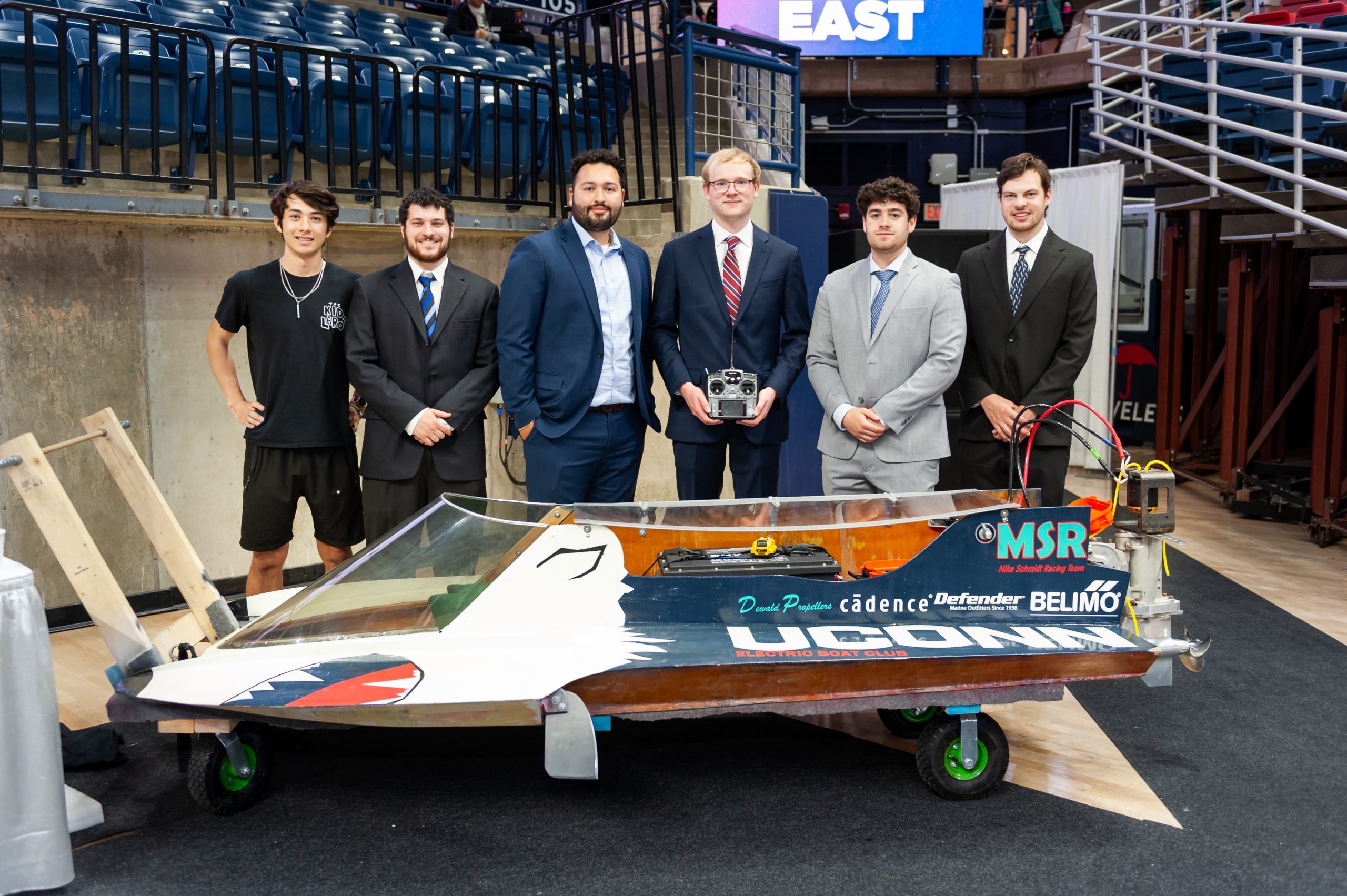Over the next two years, UConn will play a pivotal role in helping small- and mid-sized Connecticut manufacturers improve energy efficiency and reduce carbon dioxide emissions, thanks to a $2 million grant from the U.S. Department of Energy aimed at increasing the use of smart technologies.
Together with the state Department of Economic and Community Development’s Office of Manufacturing and partners CONNSTEP and the Connecticut Center for Advanced Technology (CCAT), UConn will use its technical expertise to help dozens of companies throughout the state reassess their environmental footprints and implement greener means of manufacturing.
“The work by our team has the potential to bring great value to the manufacturing base in the state, reduce emissions from the industrial sector, and train the current and future engineering workforce,” says Liang Zhang, Pratt & Whitney Associate Professor in Advanced Systems Engineering and director of UConn’s Southern New England Industrial Assessment Center.
Zhang says that since last July his center performed energy assessments at 18 businesses, seven of which are in communities identified as distressed, including two wastewater treatment plants, one potable water treatment plant, and 15 manufacturing plants. The assessments resulted in 142 recommendations that would provide a combined $3.3 million in savings.
“Connecticut is a leader in advanced manufacturing, and this grant reflects the confidence in our federal government for us to continue taking this lead,” Gov. Ned Lamont says. “Working to reduce CO2 emissions and improve energy efficiency meets two important goals of our administration – meeting our targets to combat the impacts of climate change and lowering the cost of doing business for Connecticut manufacturers.”
DECD will administer the funding and contribute $654,648 toward the Connecticut Smart Manufacturing Assessment and Access to Reduce Technology Emissions, known as CT-SMARTE, program, bringing the total to $2.65 million for the two-year pilot. Alone, about $900,000 is earmarked for the Southern New England Industrial Assessment Center and UConn’s Connecticut Manufacturing Simulation Center.
Jiong Tang, Pratt & Whitney Professor of Advanced Materials and Processing and co-director of UConn’s Management and Engineering for Manufacturing program, says simulating manufacturing processes is challenging work.
“The new trend of digital manufacturing is built on computational analysis, machine learning, and digitalization of manufacturing processes,” he says. “High-performance computing is a necessary component in all these simulations to solve the computational cost issue. This grant will allow us to develop a platform to work closely with industries, especially with small and medium manufacturers so they can take advantage of the advanced computational analysis methods being developed and the high-performance computing facilities available at UConn.”
Connecticut is one of 12 states the U.S. Department of Energy’s Office of Manufacturing and Energy Supply Chain selected to receive the federal grant, an accomplishment that Jackie Garofano ’09 MS, ’11 Ph.D., CCAT’s chief technology officer, says is a testament to the partnership her organization and UConn have developed with CONNSTEP and the Office of Manufacturing.
“Our focus at CCAT is on technology adoption for SMMs to help them increase efficiency, productivity, and reduce energy consumption and costs through implementation of smart manufacturing technologies,” she says. “Autonomous manufacturing is a key component of this program’s initiative and our partnership with UConn.”
While the CT-SMARTE program will focus on supporting the green energy, aerospace and defense, and semiconductor industries based on their high impact on the environment and economy in the state, Garofano says, the solutions developed will benefit all sectors of the industrial base, particularly for manufacturing companies in disadvantaged areas.
“Connecticut’s manufacturing supply chain is known around the world for its skilled workforce, innovation, and productivity, but we know we can’t rest on our laurels,” Paul Lavoie, Connecticut’s chief manufacturing officer, says. “Strategically planning for and investing in our manufacturing future is critical to our long-term economic success, and this award will help build capacity and resilience throughout our manufacturing ecosystem.”
CONNSTEP President and CEO Beatriz Gutierrez says, “Our organization is prepared to work with manufacturers in the state to not only help them implement smart manufacturing technologies, but also recommend process improvements to increase their efficiency and productivity.”



